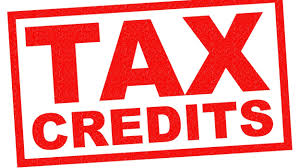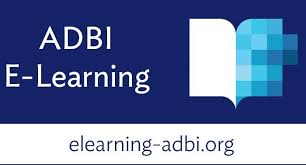In today’s competitive academic and professional landscape, your credentials and experience are important, but sometimes, they aren’t enough. That’s where a recommendation letter comes in. Some mistake it for mere formality, but a well-written recommendation can be the defining factor that sets you apart from other qualified candidates. Whether you’re applying for graduate school, a scholarship, or a new job, once you understand how essential this document is, you increase your chances higher than the rest.
At the end of this article, you will know the secret keys to writing a recommendation letter like a pro. It will unlock everything you need to know—from what a recommendation letter is to how to secure one that truly shines. Without further ado, let us get right into it. To begin:
What Is a Recommendation Letter?
A recommendation letter (also called a reference letter) is a formal document written by someone who knows you well—typically a professor, employer, or supervisor—that endorses your abilities, character, or potential to a prospective employer, or committee. Unlike a resume or application letter, which you write yourself, a recommendation letter provides a third-party perspective on your qualifications.
Key Purposes of a Reference Letter:
- To validate the claims you make in your application
-
To provide specific examples of your skills and achievements
-
To offer insight into your personal qualities and work ethic
-
To affirm your suitability for an academic program, job, or award
Whether you are writing for academic applications, scholarship committees, or professional opportunities, a strong recommendation letter serves as trusted testimony to your capabilities.
How Important Are Recommendation Letters?
Recommendation letters are influential factors in selection processes. Here’s why:
-
Credibility Boost: They provide external validation of your skills and achievements.
-
Personal Insight: They reveal qualities like teamwork, resilience, and leadership that aren’t always visible on a resume.
-
Competitive Edge: A compelling letter can distinguish you from applicants with similar grades or work experience.
-
Holistic View: Committees use them to gauge how you interact in professional or academic environments.
In short, a recommendation letter answers the critical question: “Will this person succeed in our program or role?”
Related: How to Write a Winning CV for Your Applications
Types of Recommendation Letters
Not all recommendation letters are the same. The type you need depends on your goal:
| Type | Best Written By | Primary Focus |
|---|---|---|
| Academic | Professor, Academic Advisor, Research Supervisor | Intellectual ability, academic performance, research potential, and classroom contributions. |
| Professional | Current or Former Manager, Supervisor, Colleague | Work ethic, relevant skills, accomplishments, leadership, teamwork, and professional growth. |
| Scholarship | Professor, Mentor, Community Leader | Merit, character, financial need, alignment with scholarship mission, and future potential. |
| Character | Mentor, Community Leader, Volunteer Coordinator | Integrity, personal values, community involvement, and reliability. |
Who Should Write Your Recommendation Letter?
Choosing the right recommender is critical; not everyone should write a recommendation letter. The ideal person:
-
Knows you well and can speak in detail about your abilities
-
Holds a relevant position (e.g., a professor in your major, a direct supervisor)
-
Has a positive opinion of your work and character
-
Can write clearly and persuasively
In choosing who should write your recommendation letter, prioritize the quality of the relationship over the title. A department head who barely remembers you won’t write as strong a letter as a professor who mentored your thesis.
Don’t Choose:
-
Family members or close friends, because they lack objectivity, and the committee understands this
-
Someone who doesn’t know you well, because it leads to vague and generic letters that lack authenticity
-
People with negative opinions of your work, because they would rather make you fail than help you win
-
Individuals unrelated to the field, unless it is for a character reference. Recommendation letters from professionals in the same industry are most essential
How a Good Recommendation Letter Looks
An effective recommendation letter should:
-
Begin with a strong opening. The first sentence should make it crystal clear that this is a positive, enthusiastic recommendation.
-
Tell the reader how and for how long the recommender has known you, and in what capacity.
-
Move beyond general praise to concrete instances that prove your abilities. Specific examples provide evidence that makes your praise believable and memorable
-
Whenever possible, quantify your achievements with numbers, percentages, or clear metrics. Use a measurable outcome.
-
Highlight your character traits and how they manifest in real situations. Committees want to know what kind of person you are.
-
Show where you stand relative to others at similar stages. It demonstrates how good you are compared to others with similar qualifications
-
Convey authentic excitement about your potential through both content and tone. A genuinely enthusiastic letter makes the reader excited about your potential, too.
Related: Stop Writing Application Letter Like an Amateur: Do This Instead
Structure of a Recommendation Letter
Most recommendation letters follow this format:
-
Header: Date, recipient’s name/title, institution/company address
-
Salutation: “Dear Dr. Smith,” or “To the Admissions Committee,”
-
Introduction: Recommender’s position and relationship to you; clear statement of recommendation
-
Body Paragraphs: Specific examples of your qualifications; discussion of relevant skills and character traits
-
Closing: Summary of endorsement; offer to provide further information
-
Signature: Handwritten signature (or digital equivalent), typed name, title, contact information
How Recommendation Letters Are Evaluated
Committees look for:
-
Specificity: Detailed examples versus general praise
-
Authenticity: Sincere, personalized tone
-
Relevance: How well the letter addresses the opportunity’s requirements
-
Credibility: The recommender’s qualifications and perspective
-
Consistency: Alignment with the rest of your application
A letter that says “John was a good student” is far less effective than one that says “John’s research on renewable energy models demonstrated exceptional analytical skills, resulting in a published paper.”
Related: The No-Stress Guide to Writing Your First Professional Resume
The Right Way to Request a Recommendation Letter
Follow these steps to make a professional request:
-
Ask early—at least 4-6 weeks before the deadline. Your recommender needs time to write a good reference
-
Ask in person or via video call if possible, then follow up with an email. Be honest with your appeal
-
Be specific: State the opportunity and why you’re applying. This gives them a hint at the requirements
-
Provide an “out”: “I understand if you’re too busy or don’t feel you can write a strong letter for me at the moment.”
-
Send a formal request email with all necessary details. This will serve as a reminder checklist
Following these steps will most likely propel your recommender to write a compelling recommendation.
How to Help Your Recommender Write a Strong Letter
You can make the writing process easier for your recommender by ensuring you:
- Provide your updated resume or CV: This gives them the full picture of your background and helps them align the letter with your professional story.
- Share the job description or program details: It helps them tailor their letter to exactly what the opportunity is looking for—highlighting the skills and traits that matter most.
- Give a list of key accomplishments you’ve shared: Jog their memory with specific projects or wins you achieved while working together, so they can write with precise examples.
- Note specific traits or projects you’d like highlighted: Politely suggest 2–3 qualities or experiences you hope they’ll emphasize—this keeps the letter focused and relevant.
- Clearly state deadlines and submission instructions: Ensure they know exactly when and how to submit, including links, email addresses, and any required forms.
- Offer a draft or bullet points (if they welcome it): For busy recommenders, providing a starting point saves time and ensures nothing important is missed, while still letting them personalize it.
Common Mistakes to Avoid in Recommendation Letters
Below are the common pitfalls that cause recommendation letters to lose credibility:
- Choosing a recommender based solely on title often results in a generic, impersonal letter. Choose someone who knows your work well
- Asking at the last minute: Rushed letters lack detail and impact. Request at least one month in advance to enhance preparation.
- Failing to provide context or materials: Without clear context and adequate information, the recommender is forced to guess or write vaguely. Supply a “recommender packet” with key info
- Not following up with a thank you: Shows poor professionalism and burns bridges. Always send a thank-you note and an update on the outcome
Sample Recommendation Letter Excerpt
Introduction Example:
“As the Director of Marketing at TechFlow Inc., I supervised Elena Rodriguez for over two years. During this time, she distinguished herself as one of the most innovative and results-driven project managers I have encountered. It is with great confidence that I recommend her for the MBA program at Hilltop University.”Body Example:
“Elena led our flagship product launch, coordinating across four departments. Her strategic campaign increased pre-orders by 40%—exceeding our goal by 15%. Beyond metrics, she fostered remarkable team morale during high-pressure periods, mentoring two junior associates who have since earned promotions.”
FAQ About Recommendation Letters
How many recommendation letters do I need?
Typically 2–3, but always check the specific requirements of each application.
Should the letter be confidential?
For academic applications, confidential letters (where you waive your right to view) are often viewed as more credible.
Can I use the same recommender for multiple applications?
Yes, but provide them with tailored information for each opportunity.
What if my recommender is slow to submit?
Send a polite reminder one week before the deadline, offering to help with any issues.
Can I write the letter myself and have them sign it?
Only if the recommender asks you to draft it. Always clarify their preference.
Remember, a powerful recommendation letter doesn’t just happen—it’s the result of thoughtful preparation, strong professional relationships, and clear communication. By understanding what makes these letters effective, you’re already one step closer to securing the endorsements that can help open doors to your future.






